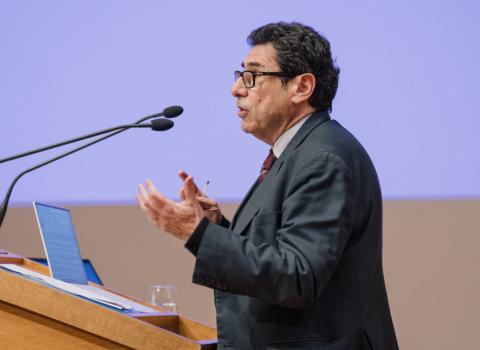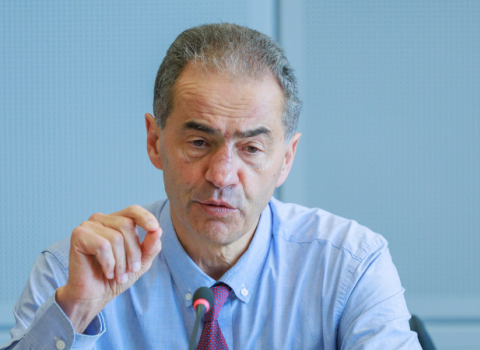When the Dutch government published its long awaited 2025 Vision on Science last year, it immediately faced a lot of criticism in the press and from scientists. One particular grievance was the proposal to centralise more power at the top of the management pyramid in the Netherlands Organisation for Scientific Research (NWO).
Discussions about the governance of NWO will continue to be at the forefront of debate in the coming months, with the forthcoming Science Agenda expected later this year. While the Dutch universities’ association (VSNU) has already offered its reaction to the government’s vision for science, my personal view differs.
To put it mildly, I’m not impressed with the many comments from Dutch scientists and researchers in defence of the current organisational structure of the NWO. To put it less mildly: in my view NWO should really be abolished and integrated within the European Research Council (ERC) with a “juste retour” clause for Dutch research funding.
By this I mean that while NWO funds would become fully governed under ERC rules of excellence, there would be a proviso that the research projects and grants selected by the ERC and funded with NWO money, would have to be carried out in The Netherlands.
Given the quality and international openness of research institutes found throughout the country, this should not represent any major drawback or compromise.
Indeed, such a move would further enhance the international research staff composition of Dutch research institutions, including universities.
This suggestion should be seen in light of the rapid internationalisation in the research process itself, initially referred to as e-science, then Science 2.0 and today as “open science”.
Punching below our weight
For me, one of the reasons why Europe has not met the high expectations which the Lisbon agreement set for research and innovation is inextricably tied to the preponderance of smaller countries with limited research budgets.
The total annual budget of NWO of €650 million is less than the UK research charity, the Wellcome Trust, spends on medical research alone. Yet relatively speaking, NWO’s funding is generous, with the Netherlands having the sixth largest European public science budget.
In some European member states, there are only regional research budgets. Belgium for example, no longer has a national research budget of any significance. However, the annual budget of the Flemish FWO is €200 million (only), four times that of Luxembourg’s FNR of €50 million.
To imagine that adding up all the different national and regional science budgets and representing total “European” research spending as comparable to the US or China - or even Germany and the UK, is to ignore completely the local idiosyncrasies surrounding national research funding in Europe.
Yet, if there is one area where subsidiarity has actually a meaning, it is in the distribution and allocation of research funds, as reflected in the creation of the ERC and the substantial increase in its funding within Horizon 2020, with a rise of 60 per cent, or €1.7 billion in 2014.
Exploiting the Juncker Plan
Integrating NWO into ERC, and doing so within the new European Fund for Strategic Investment (EFSI), Commission President Jean-Claude Juncker’s €315 billion stimulus package for Europe, might deliver further benefits.
For example, NWO funding for its large research infrastructure investments has some leveraging effect, qualifying this element of the NWO budget to be included in EFSI. As a result, this part of public spending would no longer be taken into account in the Stability and Growth Pact assessment. A recent EU policy note further defines the conditions under which national contributions to the EFSI will “not be counted when assessing the fiscal adjustment”.
These NWO investments could be excluded from the three per cent budgetary norm, enabling the Dutch government not only to safeguard such funds from any future further fiscal consolidation pressures, but also to address the present under-investment in research in The Netherlands, given greater fiscal flexibility. In short: a pure win-win.
This is something many of us have been calling for: that member states would no longer be penalised for investing in areas essential for long-term growth, such as scientific research.
Finally, some opportunities seem to be looming. We had better use them as quickly as possible.
Luc Soete is Rector Magnificus of Maastricht University and a member of the Dutch Advisory Council on Science, Technology and Innovation. This viewpoint is based on the lecture given at the Dies Natalis of Maastricht University, entitled, “Engaging talent to combat spiritual Alzheimer” on 16 January, 2015.





 A unique international forum for public research organisations and companies to connect their external engagement with strategic interests around their R&D system.
A unique international forum for public research organisations and companies to connect their external engagement with strategic interests around their R&D system.